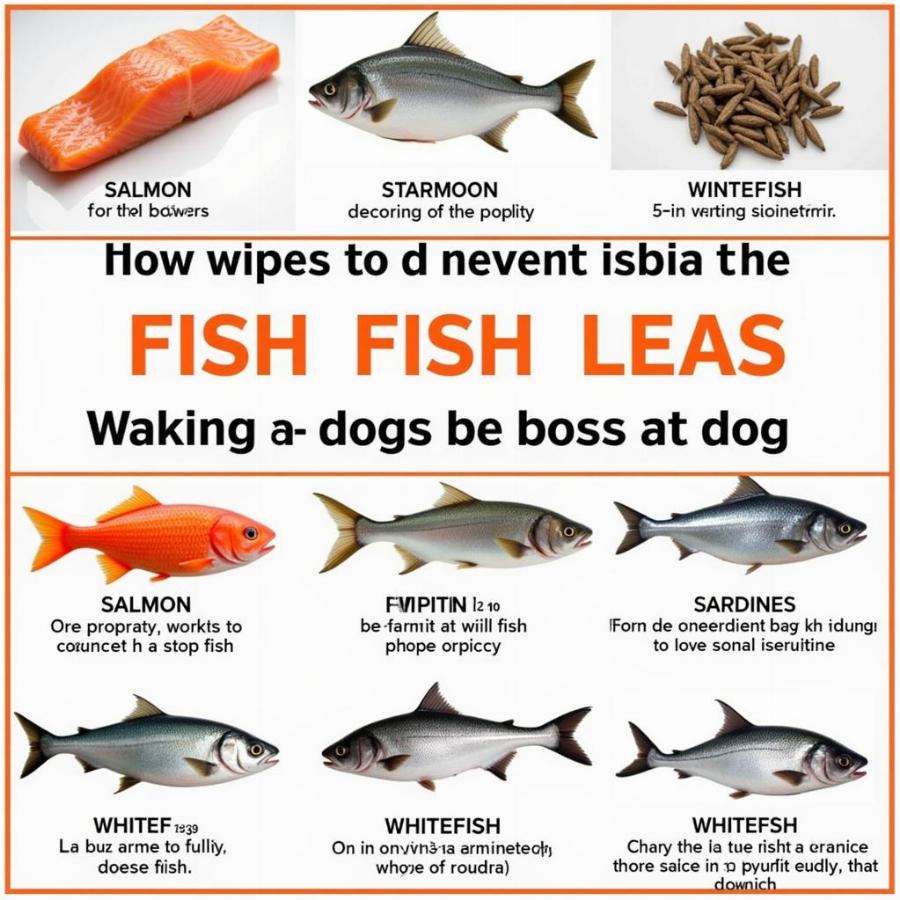Tuna fish, with its rich flavor and readily available canned options, is a pantry staple in many homes. But can our canine companions share in this fishy delight? The answer isn’t a simple yes or no. While tuna isn’t inherently toxic to dogs, feeding it regularly can present some potential health risks. Let’s dive deep into the topic of dogs eat tuna fish and explore the benefits, risks, and safe ways to occasionally share this seafood treat.
The Nutritional Value of Tuna for Dogs
Tuna is a good source of protein and omega-3 fatty acids, which can contribute to a healthy coat and skin for your furry friend. These fatty acids also play a role in reducing inflammation and supporting joint health. However, these benefits can be outweighed by the potential risks associated with mercury contamination and other factors.
Mercury in Tuna: A Cause for Concern
Tuna, especially larger species like albacore, can accumulate high levels of mercury. This heavy metal can be toxic to dogs, affecting their nervous system and kidneys. While an occasional small amount of tuna is unlikely to cause mercury poisoning, regular consumption can lead to a dangerous buildup. This is why you should always opt for tuna packed in water, not oil, and choose light tuna over albacore as it has lower mercury levels.
How Much Tuna is Safe for Dogs?
Moderation is key when it comes to feeding your dog tuna. A small amount of cooked, boneless, skinless tuna occasionally is unlikely to harm your dog. Think of it as a special treat, not a regular part of their diet. Always consult with your veterinarian to determine the appropriate amount based on your dog’s size, breed, and overall health. Overfeeding tuna can lead to digestive upset, such as vomiting and diarrhea.
Can Dogs Eat Raw Tuna?
Raw tuna poses a higher risk of transmitting parasites and bacteria, which can cause illness in dogs. It’s always best to cook tuna thoroughly before offering it to your dog. Avoid seasoning or adding any oils during the cooking process, as these can be harmful to your pet.
What About Tuna Canned in Oil or Brine?
Tuna canned in oil adds unnecessary fat and calories to your dog’s diet and can lead to weight gain and other health issues. The high sodium content in brine can also be detrimental to your dog’s health. Stick to tuna packed in water to minimize these risks.
Alternatives to Tuna for Dogs
There are plenty of other healthy and delicious fish options that are safer for dogs than tuna. Salmon, sardines, and whitefish are all excellent sources of omega-3 fatty acids and protein, with lower mercury levels.  Fish options for dogs These can be offered cooked and plain as occasional treats or incorporated into a balanced diet under the guidance of your veterinarian.
Fish options for dogs These can be offered cooked and plain as occasional treats or incorporated into a balanced diet under the guidance of your veterinarian.
Dogs Eat Tuna Fish: FAQs
- Can puppies eat tuna? Puppies are more susceptible to the harmful effects of mercury, so it’s best to avoid feeding them tuna altogether.
- What are the signs of mercury poisoning in dogs? Signs of mercury poisoning can include loss of coordination, tremors, blindness, and kidney problems. If you suspect your dog has ingested a large amount of tuna, contact your veterinarian immediately.
- Is tuna good for dogs with allergies? Tuna can be a potential allergen for some dogs. If your dog has a known food allergy, consult with your veterinarian before introducing tuna into their diet.
- Can dogs eat tuna salad? Tuna salad often contains ingredients like mayonnaise and onions that are harmful to dogs. It’s best to avoid giving your dog tuna salad.
- Can dogs eat tuna skin or bones? Tuna bones can splinter and cause choking or digestive issues. Always remove the skin and bones before feeding tuna to your dog.
- What if my dog accidentally ate a lot of tuna? Contact your veterinarian immediately. They will be able to advise you on the best course of action.
- Are there any dog food brands that contain tuna? Yes, some dog food brands contain tuna, but it’s essential to choose brands that use sustainably sourced tuna with low mercury levels.
Conclusion
While a small amount of cooked, plain tuna occasionally won’t harm your dog, it’s crucial to be mindful of the potential risks associated with dogs eat tuna fish, especially mercury contamination. Prioritizing your dog’s health means opting for safer alternatives like salmon or sardines and consulting with your veterinarian for personalized dietary advice.
Do you have questions about other foods your dog can or cannot eat? Check out our articles on is salmon safe for dogs and can dogs eat tuna mayo. For information on other dog-related topics, you can also explore our articles on coronado beach dogs, dry skin dogs treatment, and why do dogs roll in dead things.
Beaut Dogs is your one-stop resource for all things related to dog care. We provide expert advice on breed selection, nutrition, training, and overall well-being of your canine companion. When you need expert guidance, email us at [email protected] for detailed and accurate answers. Visit us at https://beautdogs.com to explore a world of information about dogs!